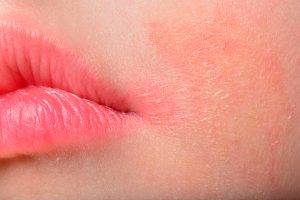
“In fact, while the risk in rosacea patients may be slightly increased compared with the general population, the absolute risk [to any one patient] is still quite low,” Egeberg explained.
Nearly 16 million Americans have rosacea. There are various treatments to help manage the condition, but as of now there is no cure.
The researchers looked at data from the Danish national health registry system and found nearly 82,000 individuals with rosacea.
The researchers determined that women with rosacea had a 28 percent likelihood of developing Alzheimer’s disease and men with rosacea had a 16 percent greater risk. Age was also a factor, as older patients with rosacea were more susceptible to Alzheimer’s disease, compared to younger patients.
Egeberg previously looked at the risk of Parkinson’s disease in rosacea and found that the skin condition does increase the risk of this neurological disease, too.
Egeberg explained the reasoning behind the findings noting, “Certain proteins and inflammatory processes have been found in increased levels in the skin of patients with rosacea. These have also been linked to dementia, in particular Alzheimer’s disease. [However] while this may be one potential explanation, we cannot say for sure that this is the cause.”
Dr. Anton Porsteinsson, director of the Alzheimer’s Disease Care, Research and Education Program at the University of Rochester School of Medicine and Dentistry, added, “There may be common processes that put you at risk for both disorders. The important next step leading from this finding is to better understand the underpinning of both conditions and if treatment targets or lifestyle modifications can be discovered that impact the risk of developing these conditions. It will also be interesting to examine if successful treatment of one condition has an impact on the course of the other.”
In the meantime, individuals over the age of 60 should pay close attention to any changes in their cognitive function – especially if they have rosacea.
Also, read Bel Marra Health’s article on Rosacea, a chronic inflammatory skin condition, often affects middle-aged and elderly.